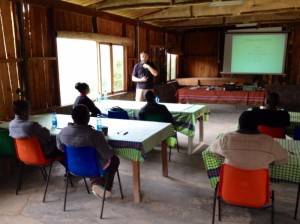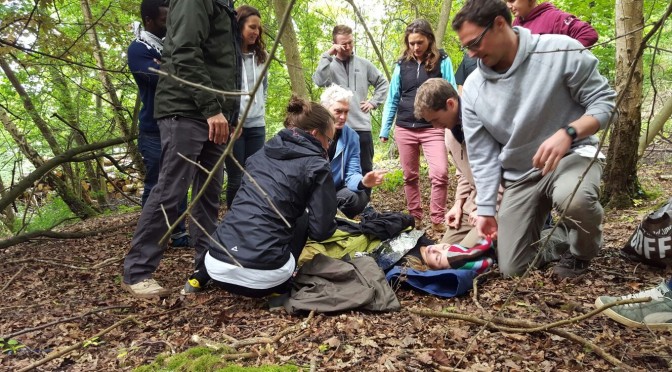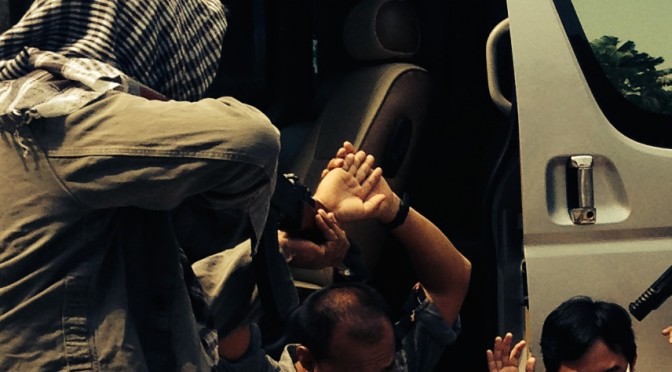
First Aid in Remote Locations is designed for NGO staff working away from the infrastructure of a city or town. Whether working alone or with the local population, this course is aimed at groups who will experience a delay in accessing medical care for a colleague injured or taken ill.
The course can be adapted, but the core syllabus meets [and exceeds] the HSE’s requirements for workplace first aid.
The core learning outcomes in First Aid in Remote Locations training are:
Outline the SAFE approach
Perform, in a simulated setting, basic life support on an adult
Perform, in a simulated setting, basic life support on a child/infant
Demonstrate, in a simulated setting, use of a pocket mask
Demonstrate, in a simulated setting, management of choking
Place a casualty in the recovery position
Outline the management of a casualty with chest pain
State the management steps for a casualty who has fainted
Outline the management of a casualty who is convulsing
Demonstrate, in a simulated setting, use of direct pressure to control bleeding
Demonstrate, in a simulated setting, use of elevation to control bleeding
Outline the management of burns
Outline the management of scalds
Discuss the recognition of shock
State the management steps for shock
Demonstrate, in a simulated setting, initial management of suspected fractures
Discuss recognition and management of common major illness.
List contents of available first aid kits
Outline the importance of taking a history from the patient
Discuss the importance of gathering information on the mechanism of injury
Demonstrate, in a simulated setting, examination of the patient to current CABC protocols
Demonstrate, in a simulated setting, use of indirect pressure to control bleeding
Demonstrate, in a simulated setting, use of windlass/tourniquets to control bleeding
Demonstrate, in a simulated setting, use of haemostatic dressings to control bleeding
Demonstrate, in a simulated setting, management of head injuries
Demonstrate, in a simulated setting, manual management of spinal injuries
Demonstrate, in a simulated setting, management of chest injuries
Demonstrate, in a simulated setting, management of abdominal injuries
Demonstrate, in a simulated setting, simple management of suspected pelvic injuries
Outline management of soft tissues injuries such as sprains and strains
Discuss the identification and treatment of eye injuries including irrigation
Outline the management of an asthma attack
State the management of near drowning
Discuss identification and management of a suspected Stroke [CVA]
Discuss identification of imbalances in the sugar levels
Outline the management of suspected poisoning
Discuss the identification of hypothermia
Demonstrate, in a simulated setting, management of a casualty with hypothermia
Discuss the identification of heat injury such as heat exhaustion and heat stroke
Demonstrate, in a simulated setting, management of a casualty with a heat injury
Outline the identification of anaphylactic shock
Discuss the management of anaphylactic shock
Demonstrate, in a simulated setting, immobilisation of suspected fractures
Demonstrate, in a simulated setting, movement of a casualty
Discuss the requirements of prolonged medical care in the field
Demonstrate, in a simulated setting, taking observations of the casualty ie pulse rate
Demonstrate loading a casualty into a vehicle for evacuation to medical care
Discuss ongoing care whilst in a vehicle
Demonstrate, in a simulated setting, care of a casualty in a road traffic collision
Demonstrate treatment of a minor wound such as a laceration using equipment from the first aid kit.
Discuss simple treatment of common travel related aliments such as travellers diarrhoea using items from issued first aid kits
Outline typical fluid intake requirements
Discuss simple first aid treatments of bites and stings likely to be encountered
Demonstrate maintenance of simple records of treatment given.
This first aid on remote locations course is highly practical and reflects our #trainforreal and “first aid is a contact sport” mantras. Delegates are faced with scenarios involving casualty simulation including fake blood.
To find out more about our training methods visit our scenarios and simulations page or contact us on 0800 242 5210.




